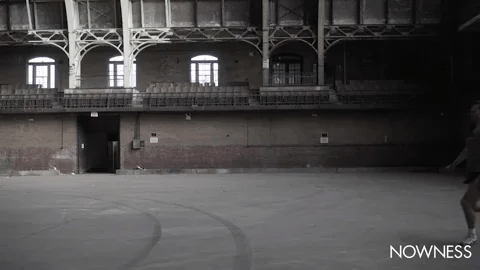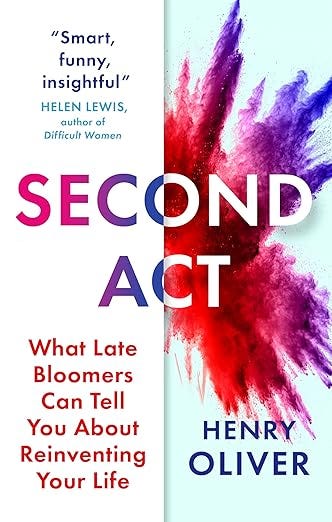Celebrate the Gift of Closed Doors
The joy of deadlines and limitations, or why "Sometimes it really is too late."

There’s a popular post format that you might have seen. It looks something like this:
Julia Child didn't learn to cook until her late 30s and published her first cookbook at 50.
Charles Bukowski worked as a postal worker until age 49.
Samuel L. Jackson didn't get his breakthrough role in "Pulp Fiction" until age 46.
…It’s not too late!
And technically, the examples in posts like these hold up. You can start writing a book at any age. You can change careers later in life and benefit from the experience you had doing something else. For writers, actors, and other creative types, this experience is especially helpful—it allows you to approach the work differently than others who’ve started earlier typically do.
While these stories are inspiring, the “it’s not too late” lesson is not universal. Sometimes it IS too late! To believe otherwise is to believe in a fantasy.
Some things in life have real deadlines—not all, but some. Most of the examples on the “it’s not too late” lists refer to intellectual pursuits, not highly physical ones.
Think of Olympic gymnastics, where elite competitors typically peak in their teens or early twenties. Competing seriously at dance or most sports is harder than starting a business or going to acting auditions.
Even for some intellectual pursuits, starting later in life is much harder than earlier. Certain skills require early development of neural pathways, like learning a language to fluency or becoming a concert pianist. You can learn to speak a language or play the piano, but you won’t learn the way you would have as a child or young adult.
Time also passes differently as we age, and the time remaining becomes scarcer in later years of life. You could start medical school at age 60, but your years of being able to practice would be limited. The investment of time and resources might not align with your life goals at that stage.
Depressing? It Doesn’t Have to Be!
You get the idea—limits are real. And is this the worst thing in the world? Is it even terrible at all?
I’ve written a few times about my rejection from most Ph.D programs that I applied to, and how it felt crushing at the time. It’s what I thought I wanted more than anything. But much to my eternal happiness, the registrars of American’s finest institutions decided to save me 4-6 years of life. Those years turned into the best and most productive years of my life as I began writing online and then writing books.
(I guess technically it’s not too late to apply again … but I hope that it is! In fact, I’m going to go with that: it’s too late, yay.)
So maybe instead of mourning, we should celebrate the things that have passed us by.
When you’re young, you tend to learn hard lessons about heartbreak, for example. These lessons, while painful, build resilience. Of course, you can still have hard breakups later in life, but they don’t tend to hit with the same intensity. The first time—and maybe a few more times—you thought you simply couldn’t live if you separated from a person you loved. With the benefit of experience, you realize that you can.
A More Constructive Framing
“It’s not too late” for lots of things, and that’s great. But sometimes it is, and that’s okay.
It’s not too late to learn something new.
It’s not too late to try new things.
But it might be too late for specific paths, and that's perfectly fine. In fact, it’s worth celebrating.
P.S. On the subject of doing things later in life: one of my favorite Substack newsletters is The Common Reader by Henry Oliver. Henry has a new book out on the subject of late bloomers. It’s called Second Act, and was recently published in the US after its earlier debut in the UK. Recommended.




This resonates with me. For many years I have thought about getting another degree, in Art, English literature and creative writing. The plan was to do it part-time, completing it in 6 years. But then I thought: I'm close to retirement - do I want to spend my time studying set texts, completing assignments and taking exams, instead of enjoying my free time?
And the answer was a resounding no. What is the point of me getting a qualification at the age of 67, too late to use in a career?
But I still want to learn about art, English literature, creative writing, music and more. So I have made my own study plan. I have a spreadsheet of courses from Coursera, Ed-X, Future Learn, Open Learn, Udemy on the subjects I am deeply interested in.
There are many advantages to doing this: firstly it's mostly free (I don't need a qualification, so I don't need to pay for a certificate); I can do the courses in the order I want to, and in my own time; and every single course I study is hand-picked by me (and I don't have to complete a course if I don't want to). Adding to the knowledge I get from the courses, I can read books around the subjects if I want more.
I'm so excited to be working towards my home-made degree, and so glad I decided it was too late to do it the official way!
Elite activities will always be for a handful of dedicated youngsters. But the lifelong pursuit of engaging meaningfully with life is for everyone. It’s never too late to start going to the gym, starting a knitting practice or a meditation practice. The lesson I wish I could send to younger me is that everything is a possibility for me and I am only competing with myself. Physical education and sports in elementary school and high school emphasize and value competition and naming first, second and third placement so highly that everyone else is discouraged from even trying. We all need exercise and movement. Everyone loves a good underdog story and a good comeback story.